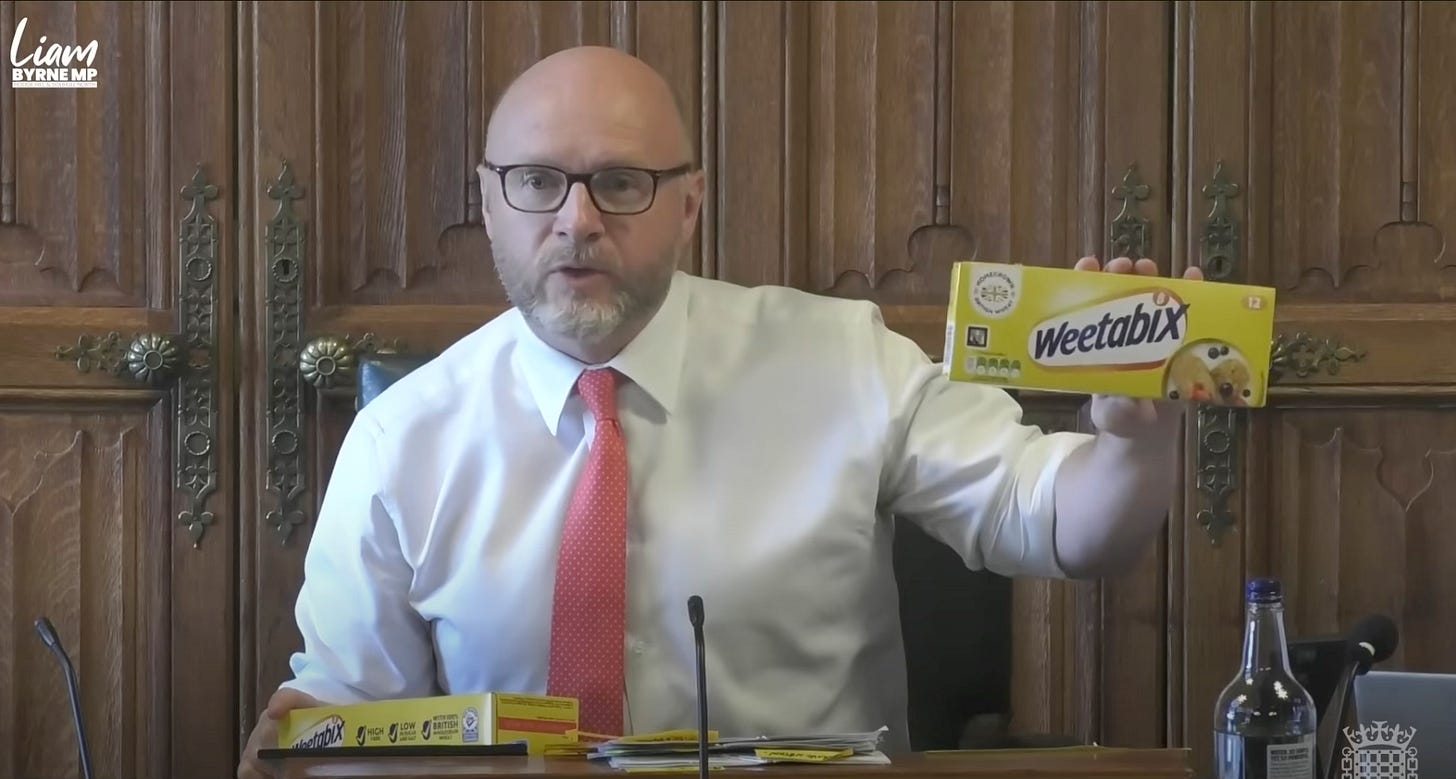Has Liam Byrne had his Weetabix?
Open data is better for consumers than moralising.
POD! On The Abundance Agenda podcast this week, we explore why the UK-US nuclear energy agreement is a big deal, and what it means for Britain’s nuclear build-out – and we speak to Michael Jenner, CEO of Last Energy UK, who is building a new micro-reactor to power the London Gateway port.
Plus, Martin, has an utterly mad story about how a single barge in Bristol has delayed a major redevelopment for eighteen years.
Listen on Apple, Spotify, YouTube, or Substack.
Sometimes I like to check in on YouTube Shorts to see what the hot new thing is with Gen-Z, so I can pretend that I’m not yet old and out of touch.
That’s how I learned recently that the next ‘Labubu’ could well be Labour MP Liam Byrne, who is the star of this viral short published by the campaign group 38 Degrees.1
As you can see above, it’s a clip from the Business and Trade Committee, which Byrne chairs. In the video, he holds up two identical packs of Weetabix, and explains that one was bought from a Tesco Express in a poorer part of his constituency for £2.20, and the other was bought from a larger Tesco supermarket in a leafier area, for just £2.
At the time of writing, the short has 5.7 million views, demonstrating that it’s an effective piece of theatre, as sitting watching him explain this are two senior executives from Tesco and Sainsbury’s.2
Byrne is also clearly proud of the gotcha. He’s released a longer cut of the exchange on his own YouTube channel and accuses the supermarkets of “two-tier pricing”, which he also connects to the broader themes of his book on wealth inequality.
And it is this unfairness that really animates him.
If you watch the longer video, or read the transcript of the session, you’ll see that Byrne and his fellow Labour MP Matt Western really hammer away at the price disparity between supermarkets and smaller convenience stores, like it is a damning moral indictment of the supermarkets.
“Sainsbury’s made a profit of nearly £1 billion last year. Tesco’s profit was nearly £2.8 billion, so both businesses are extremely profitable. The question for us is why you are charging higher prices for people who can only shop in smaller stores when there is not a profit problem at either of your companies,” says Byrne.
He then turns the screws, asking if ensuring low income customers have access to affordable food is considered an “important mission” for Tesco, and whether the company’s representative thinks the price disparity status quo is “basically fine”.
Now here’s the point where I’m going to make myself unpopular, as I can’t really see what the supermarkets are doing wrong here. I think any attempt to imbue their actions with moral meaning is fundamentally a misdiagnosis of the problem – and if we want to mitigate this disparity, we need to get serious about understanding the actual problem.
So join me behind the paywall as we dive into the economics of supermarkets, the competitiveness of the grocery industry, and the most on-brand solution you could possibly imagine.3
Keep reading with a 7-day free trial
Subscribe to Odds and Ends of History to keep reading this post and get 7 days of free access to the full post archives.



